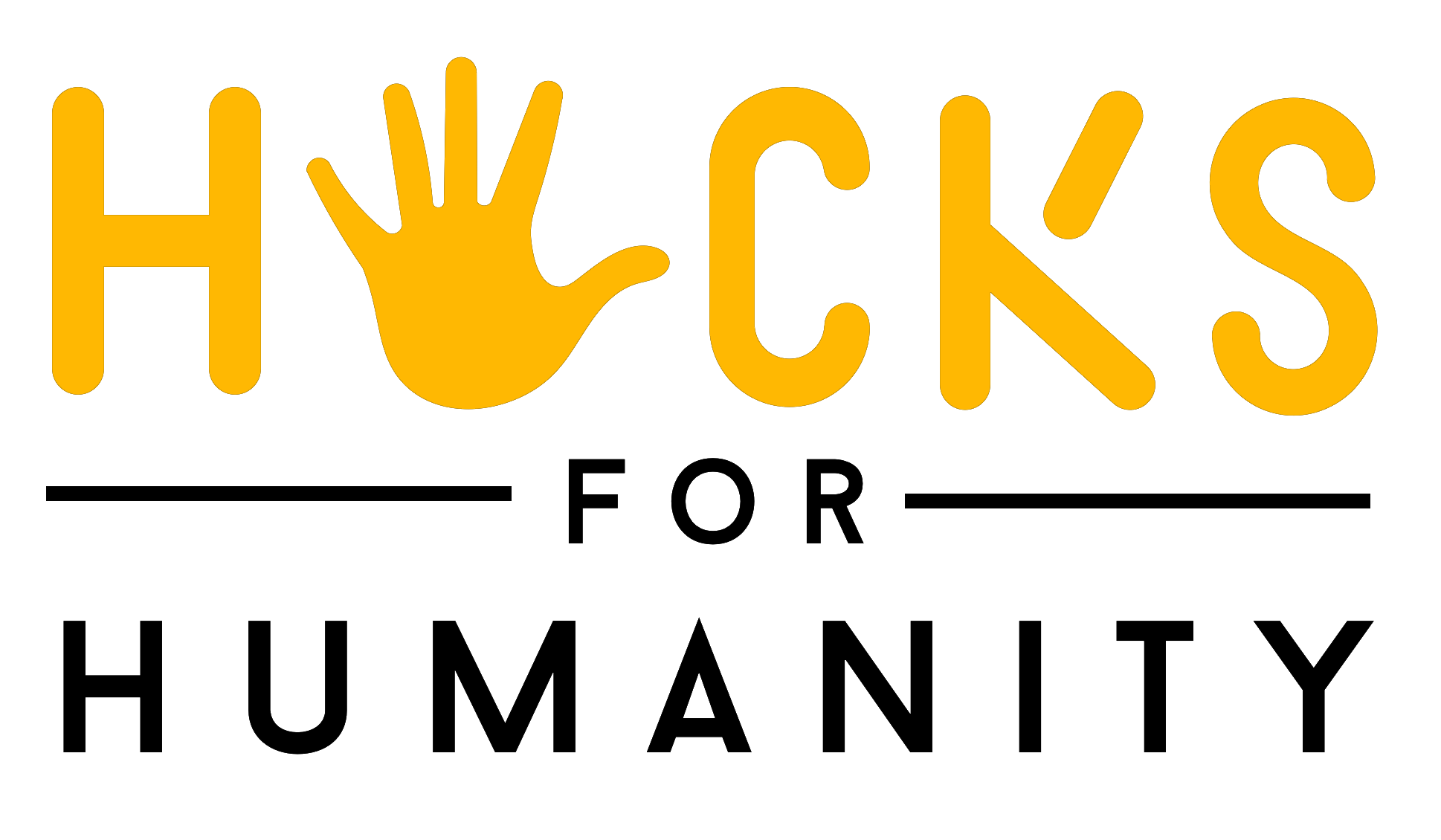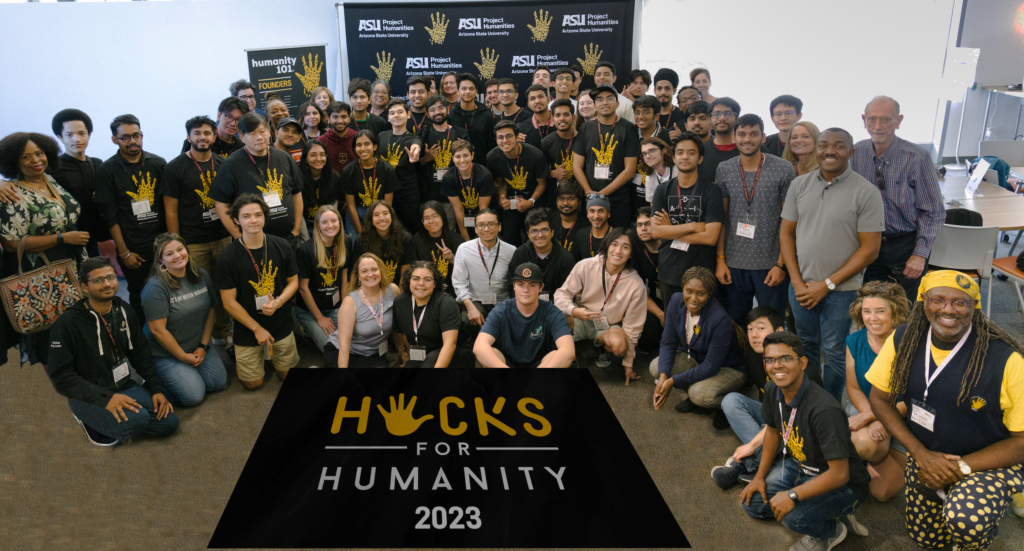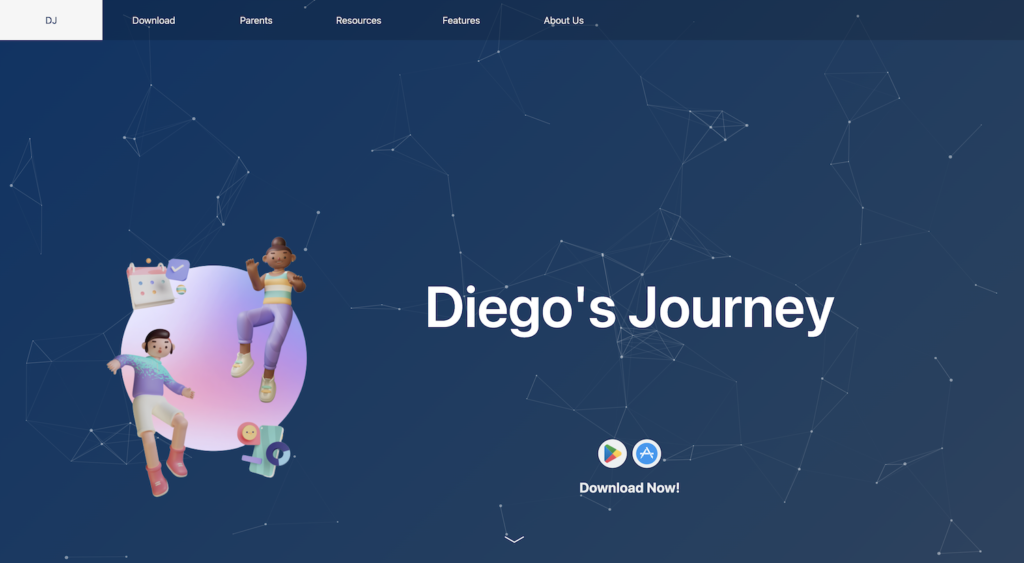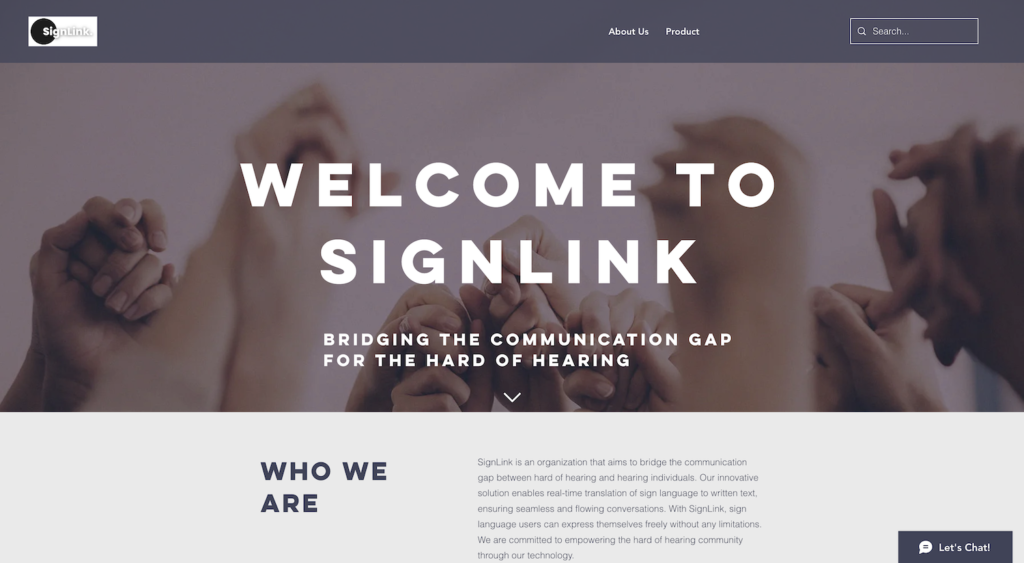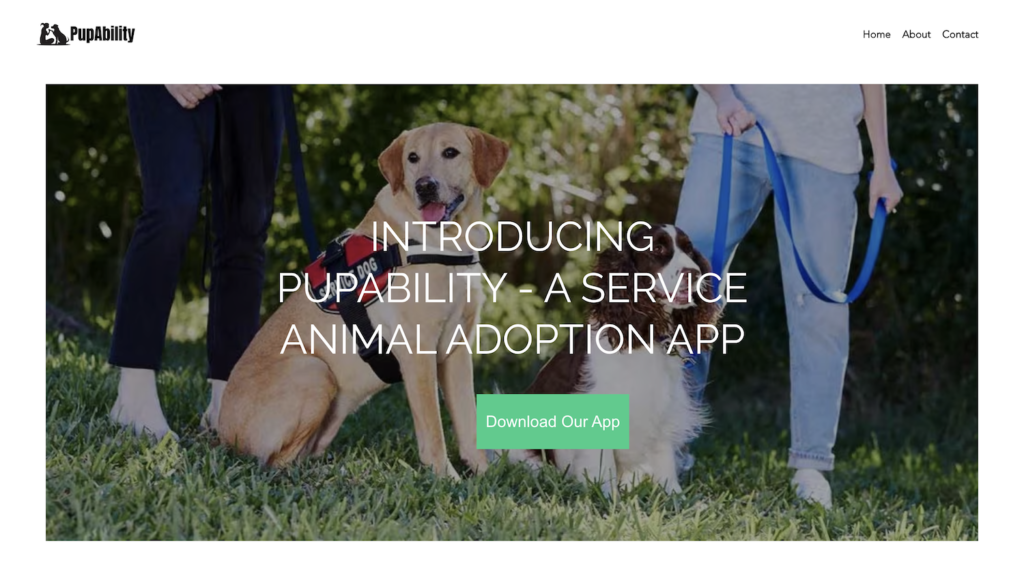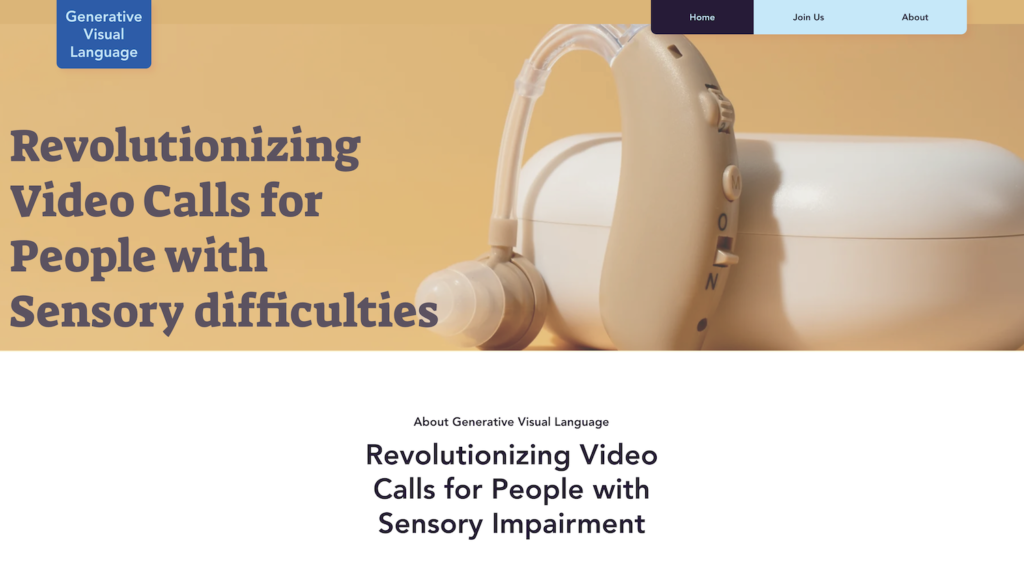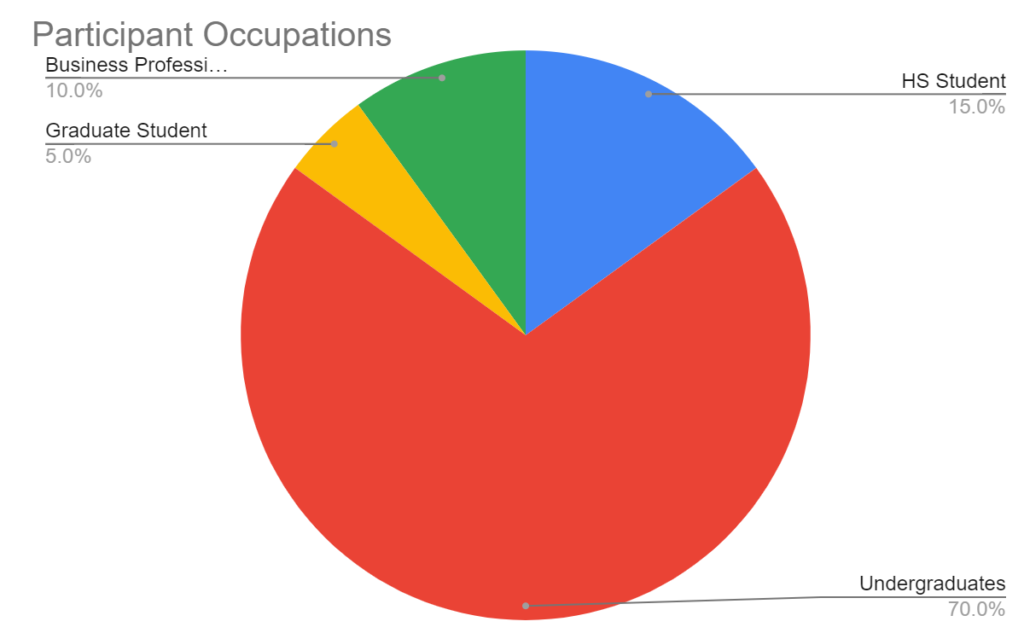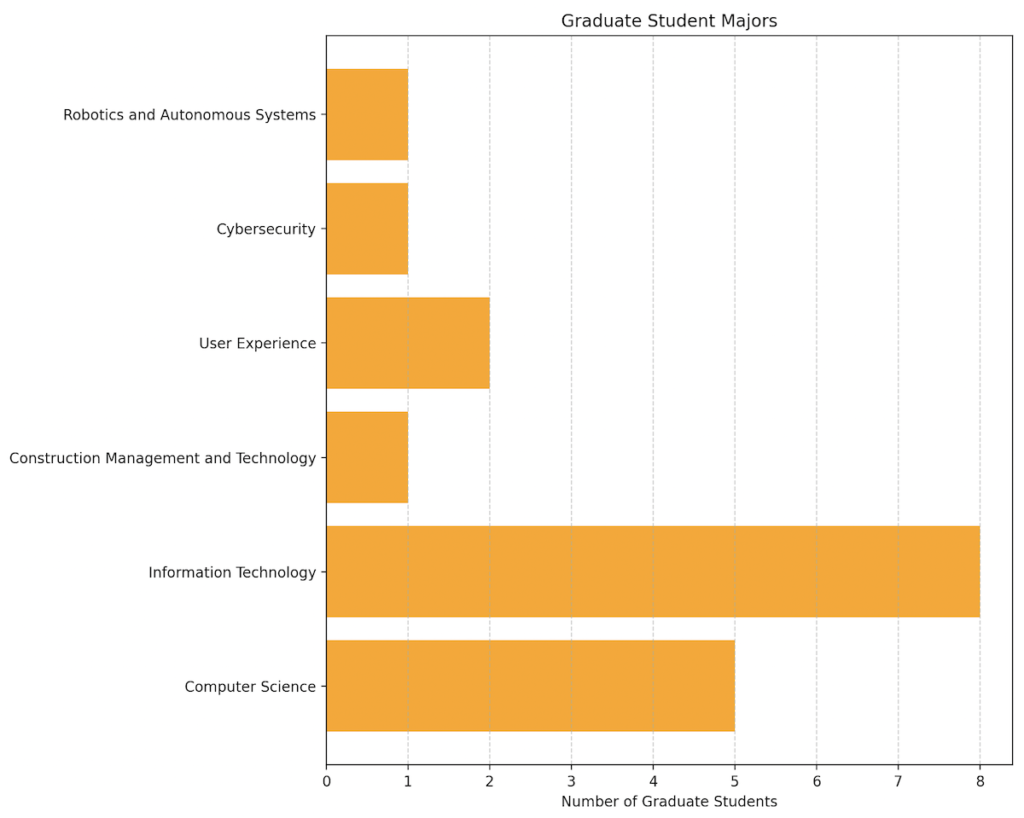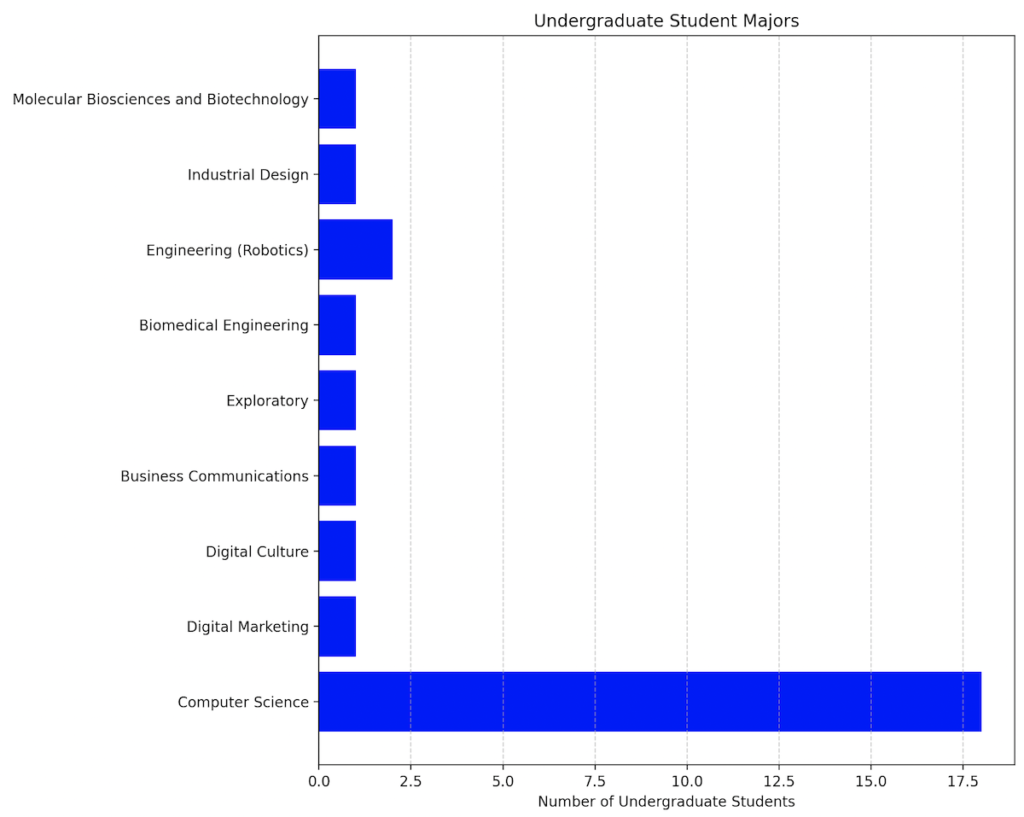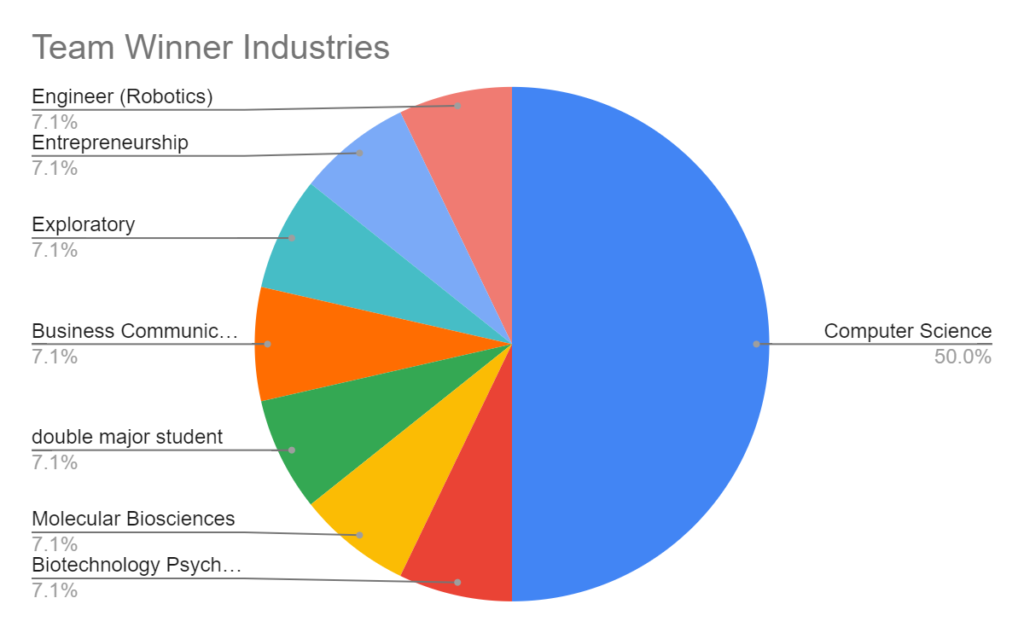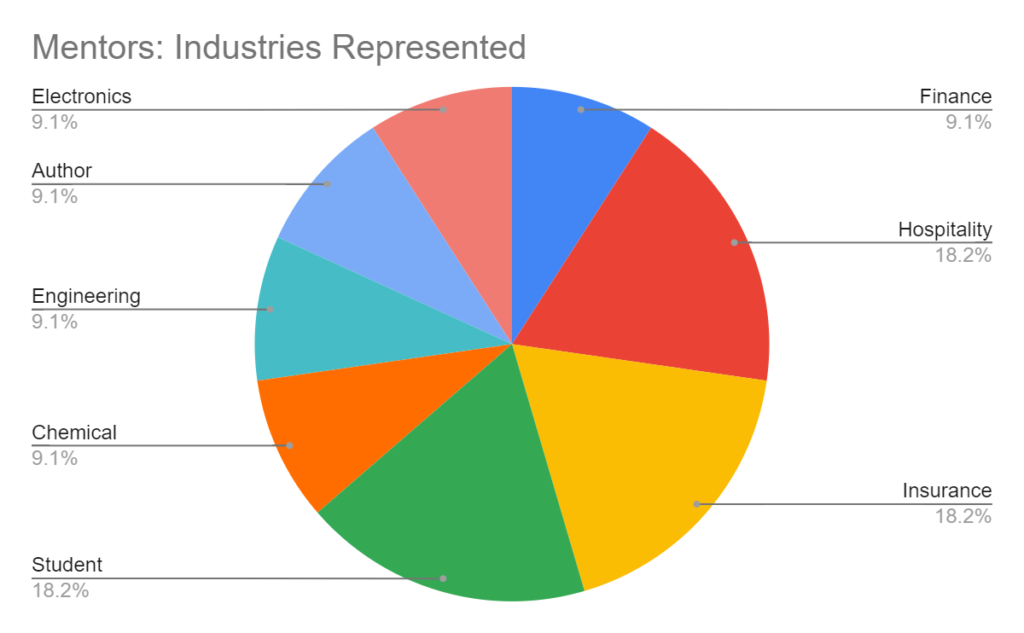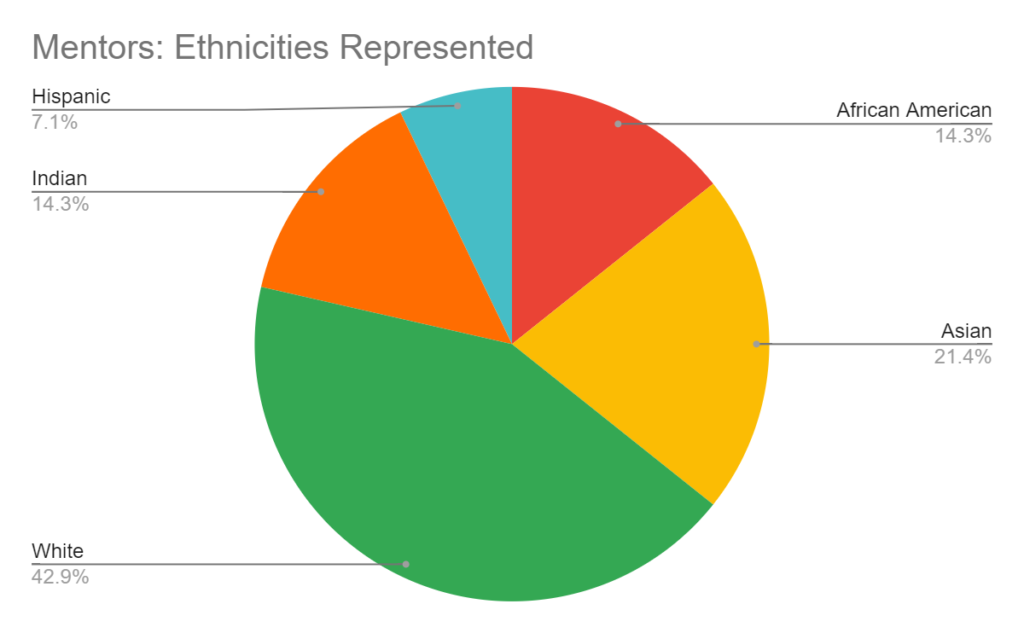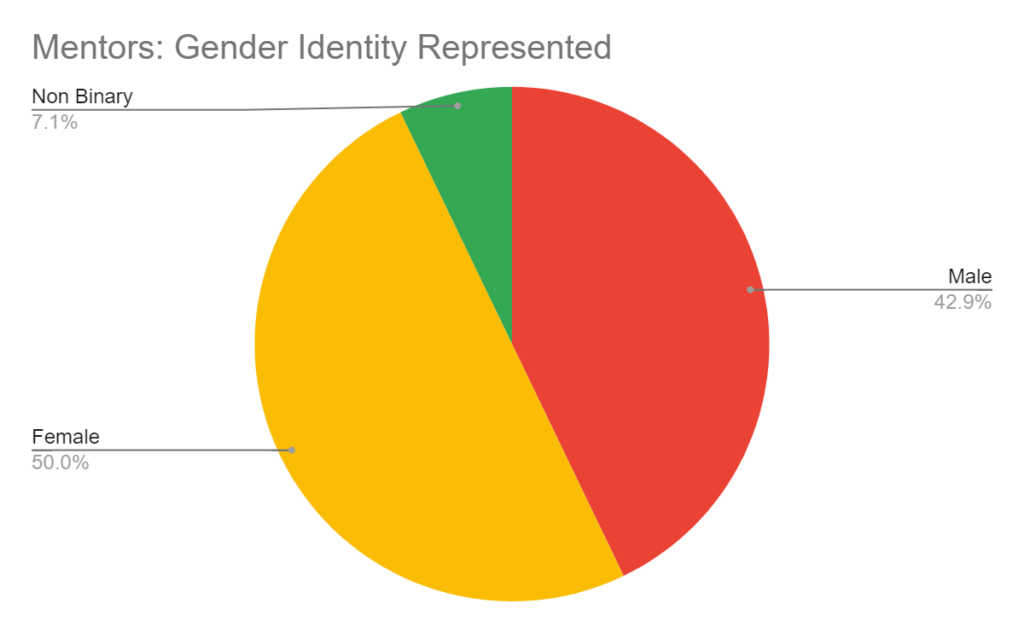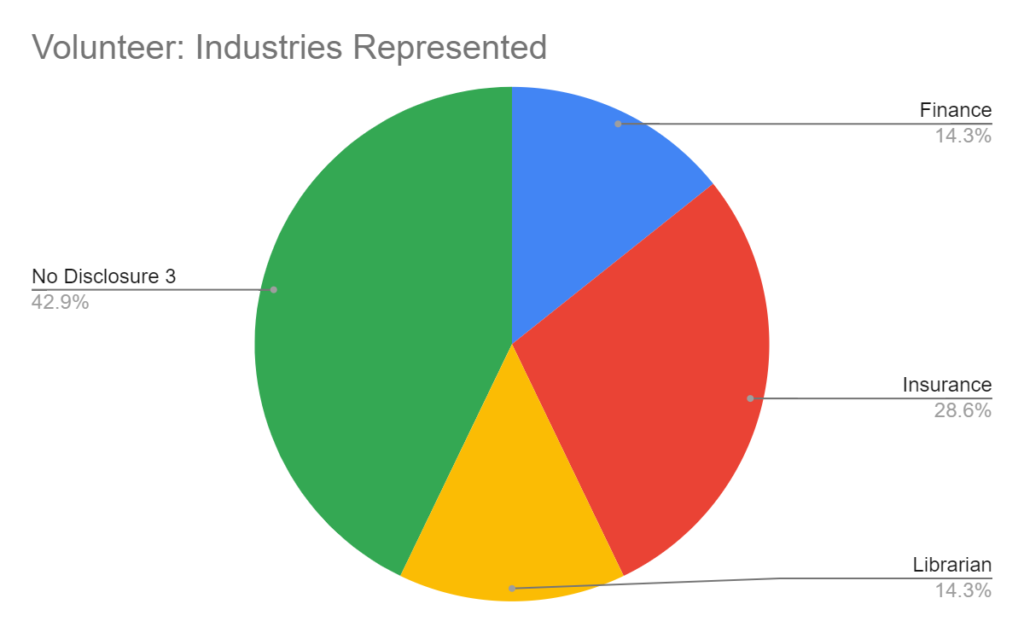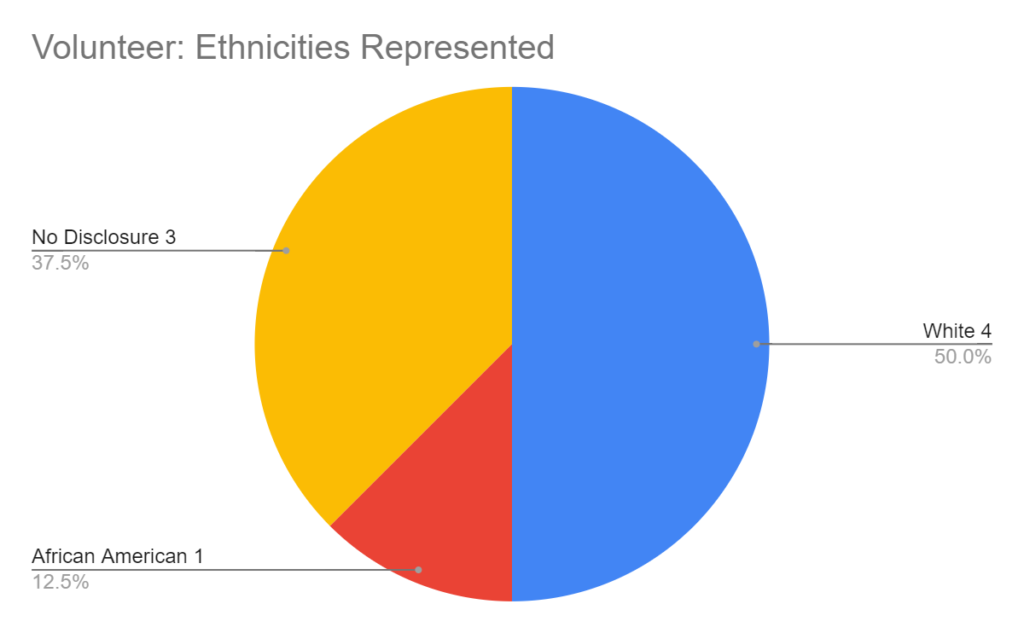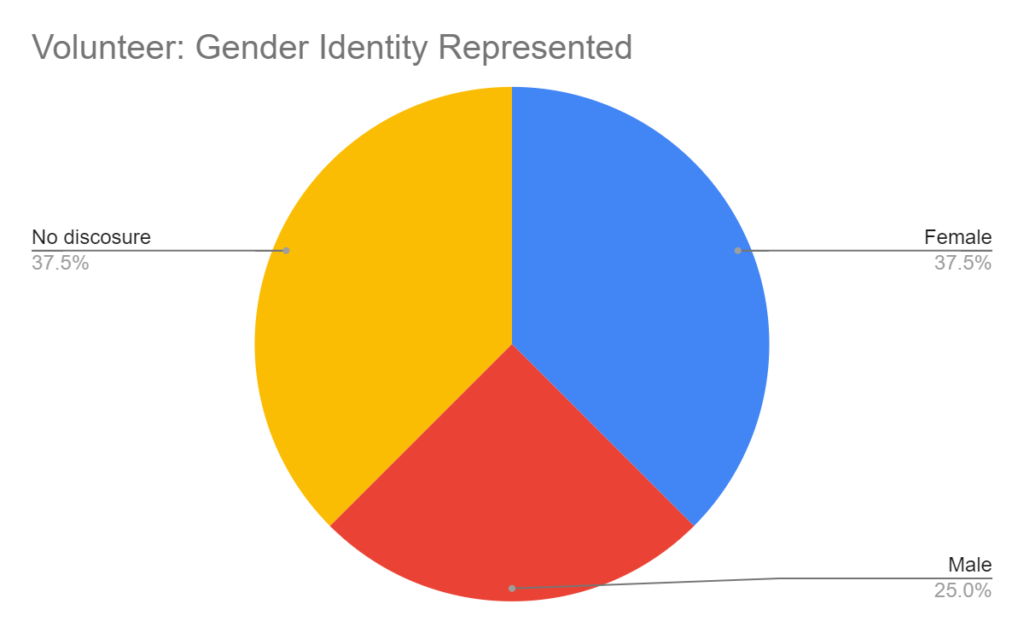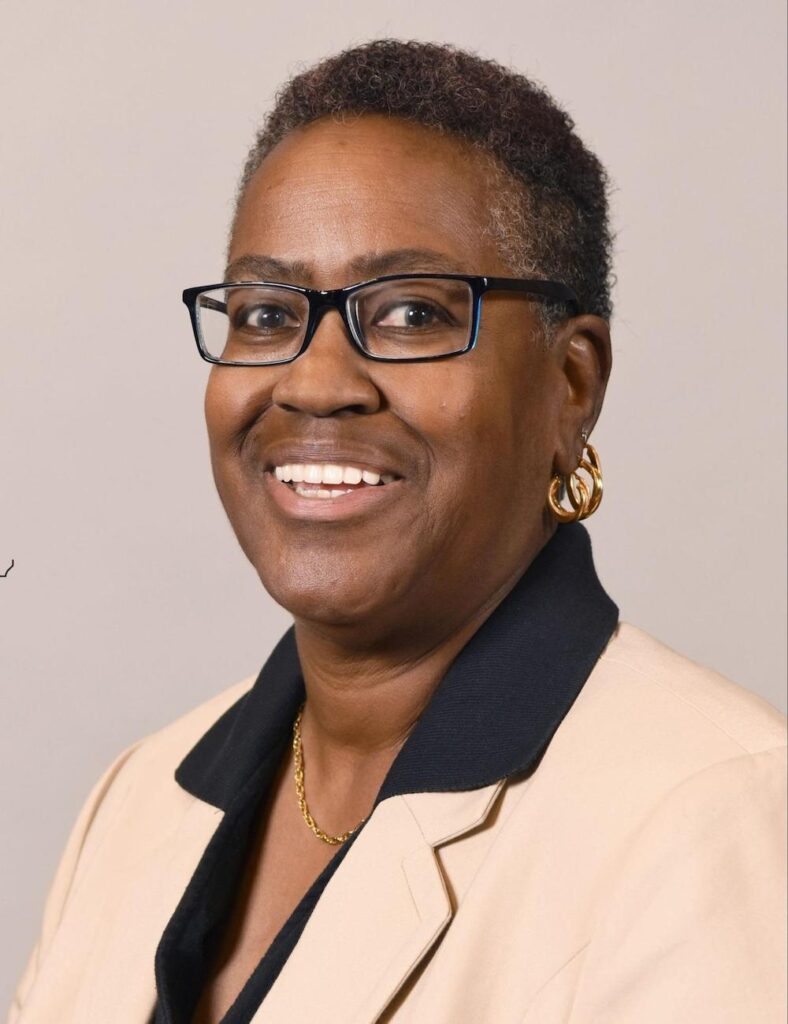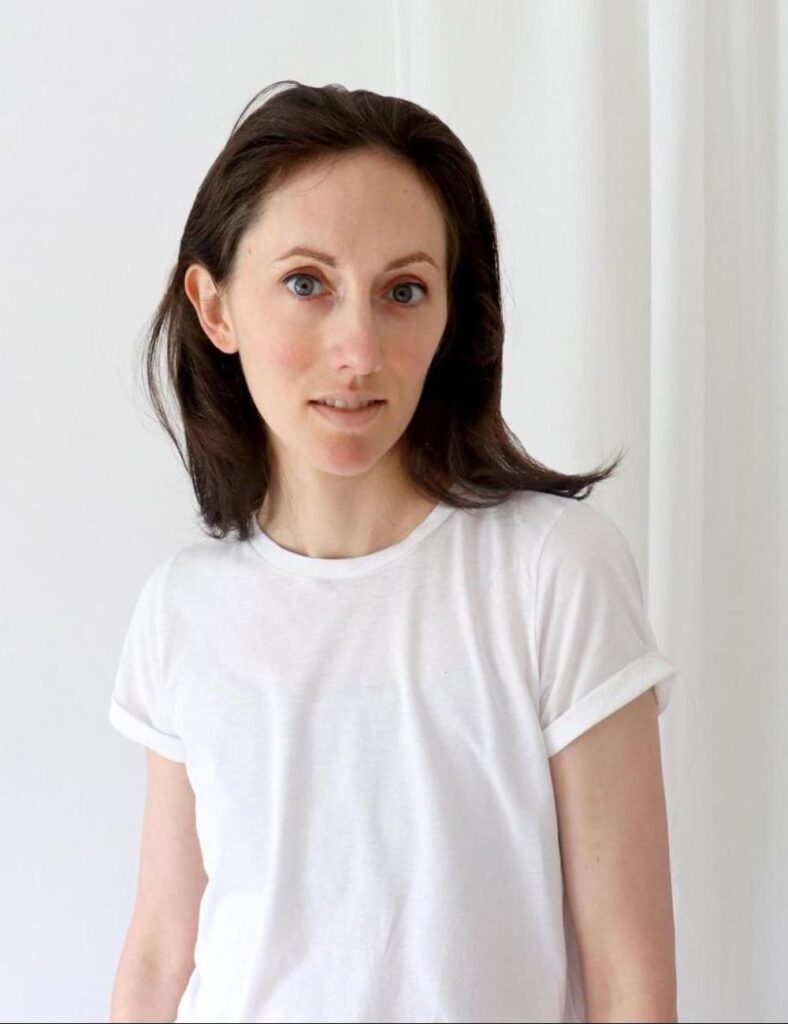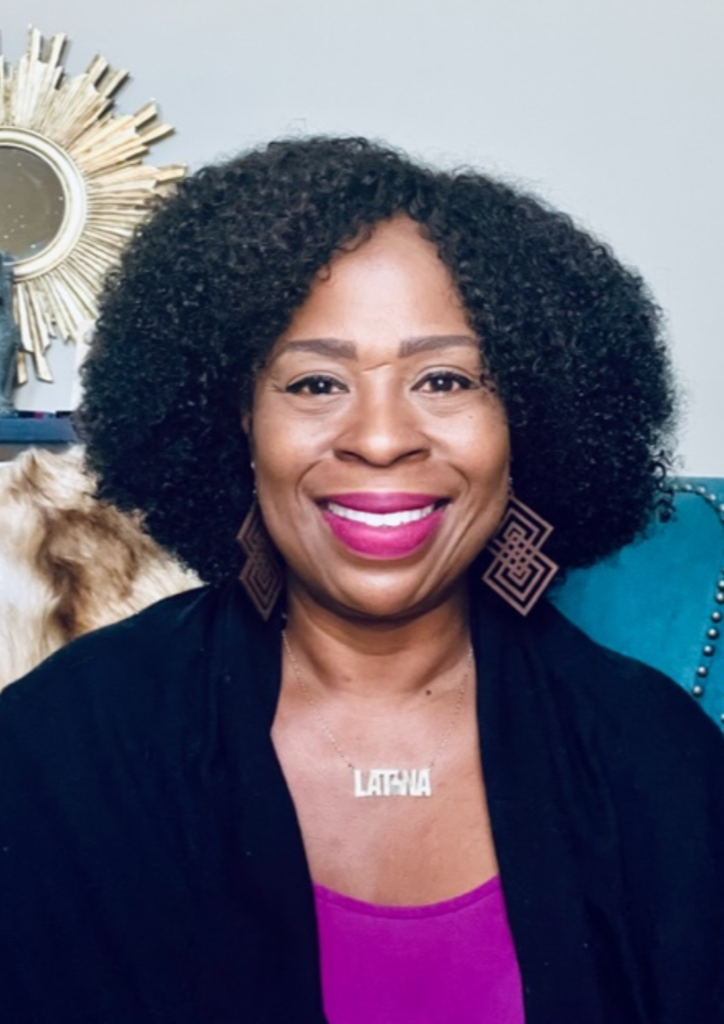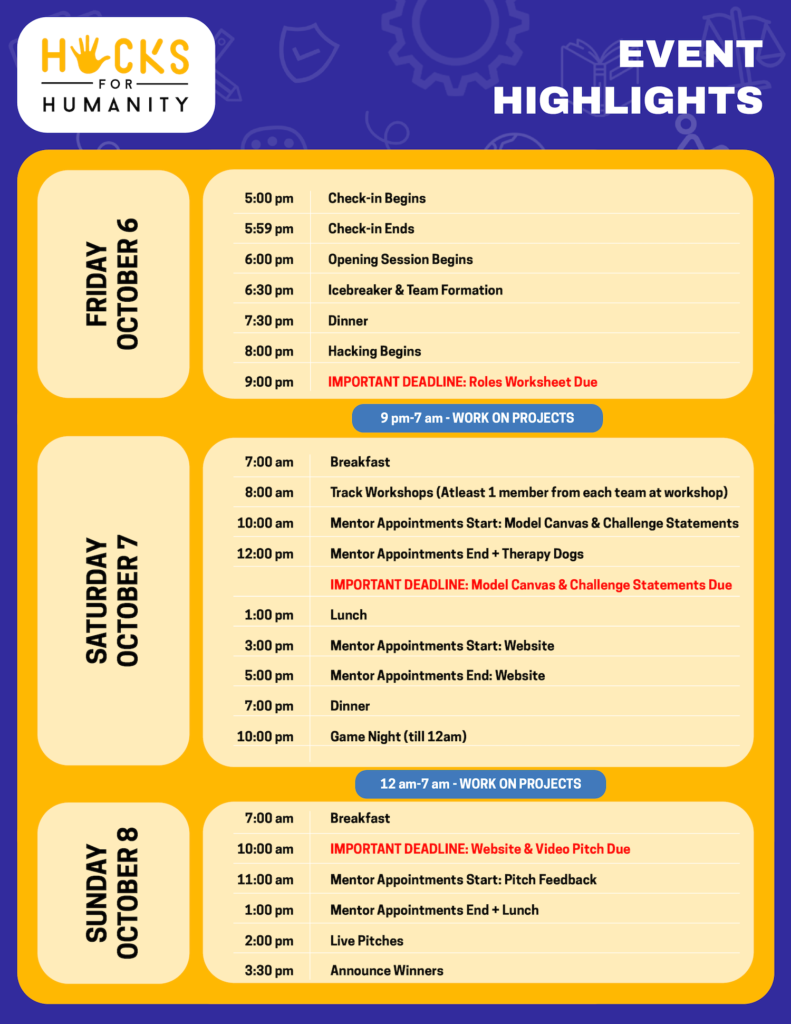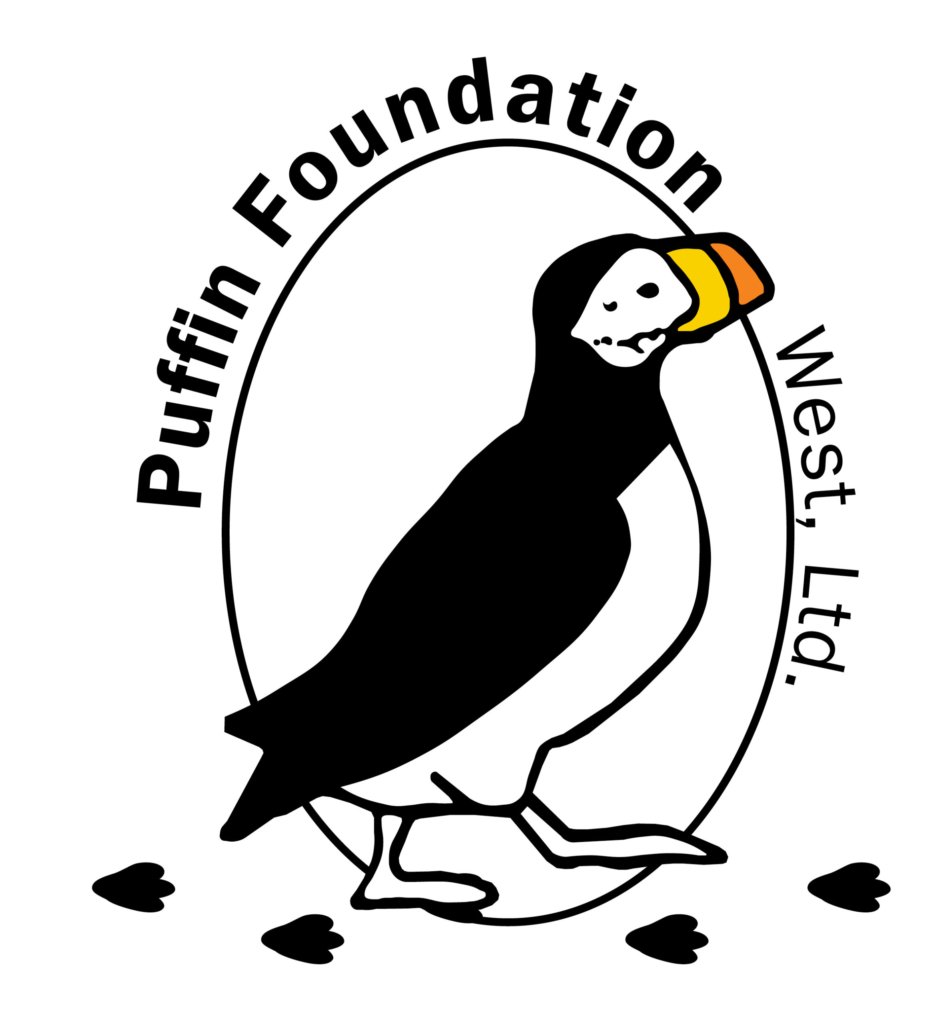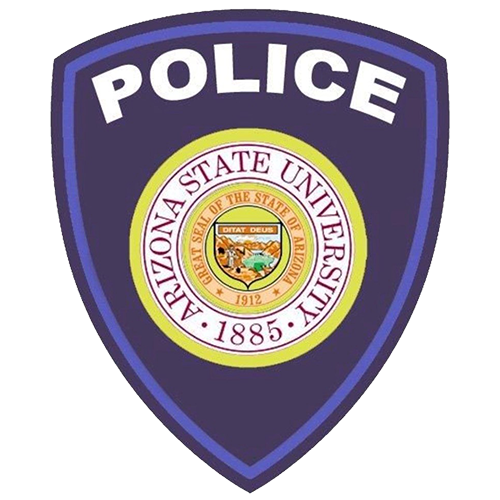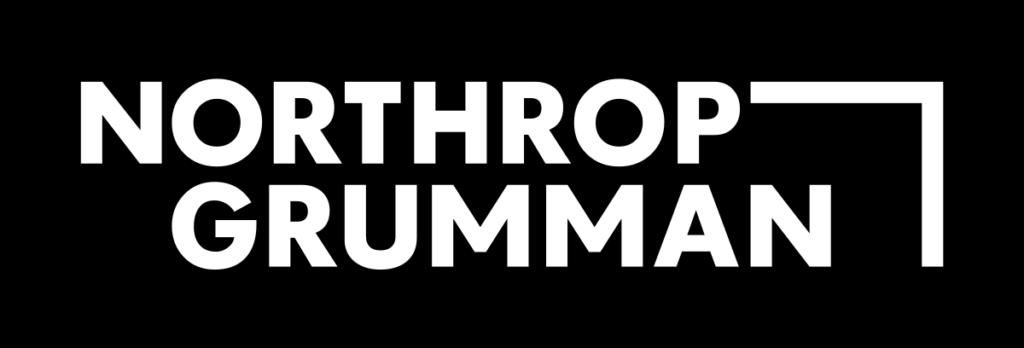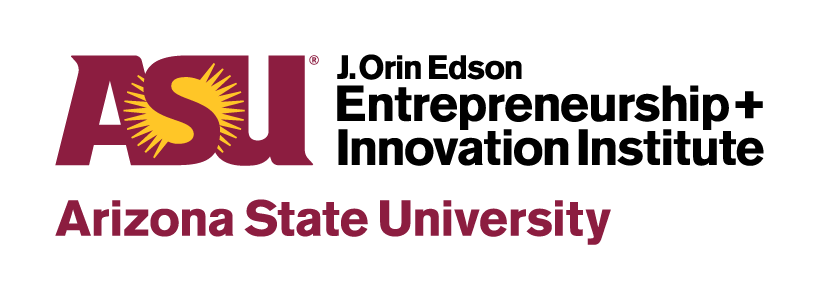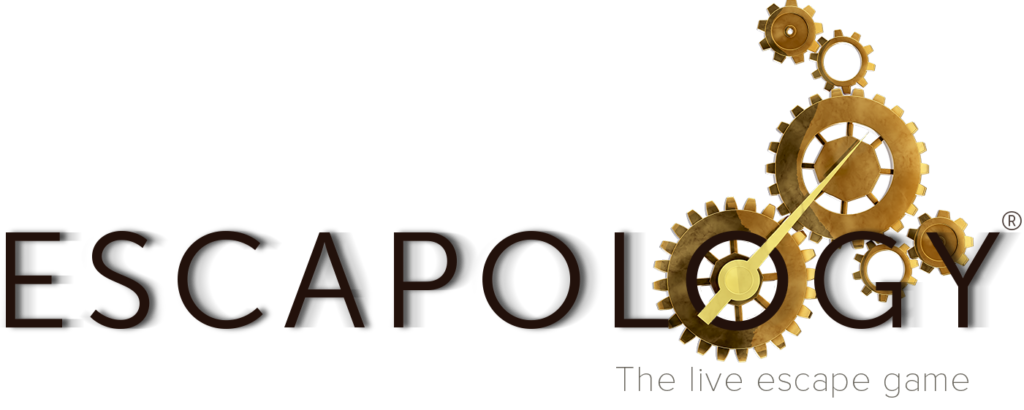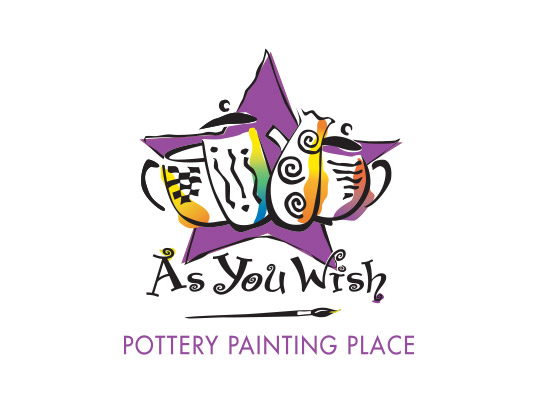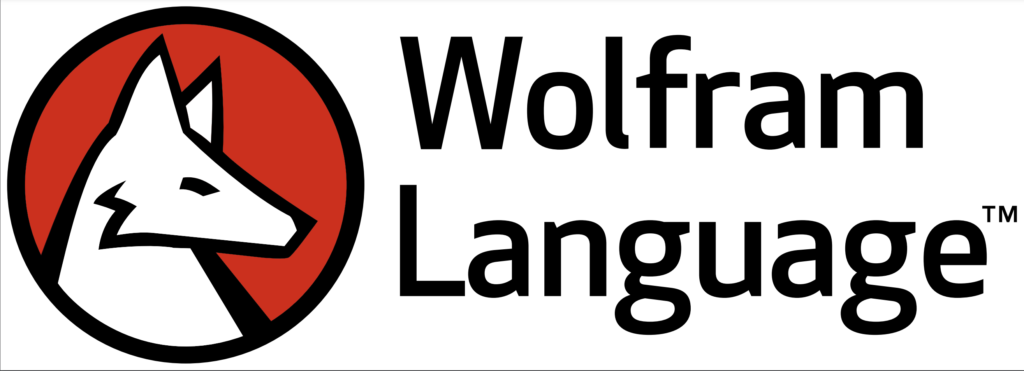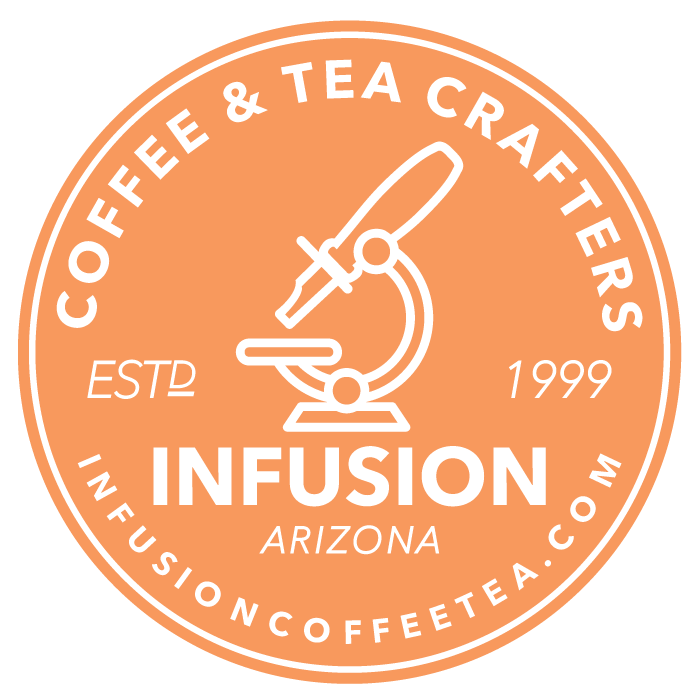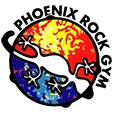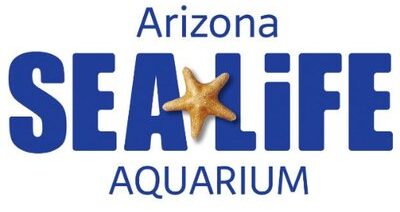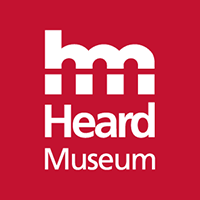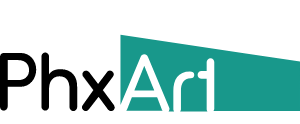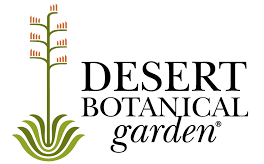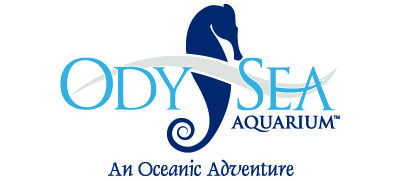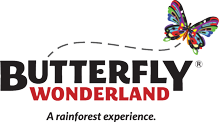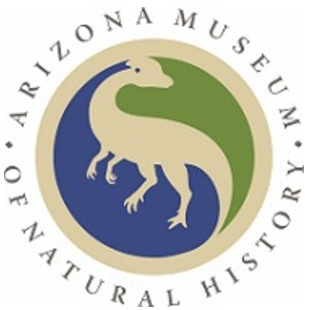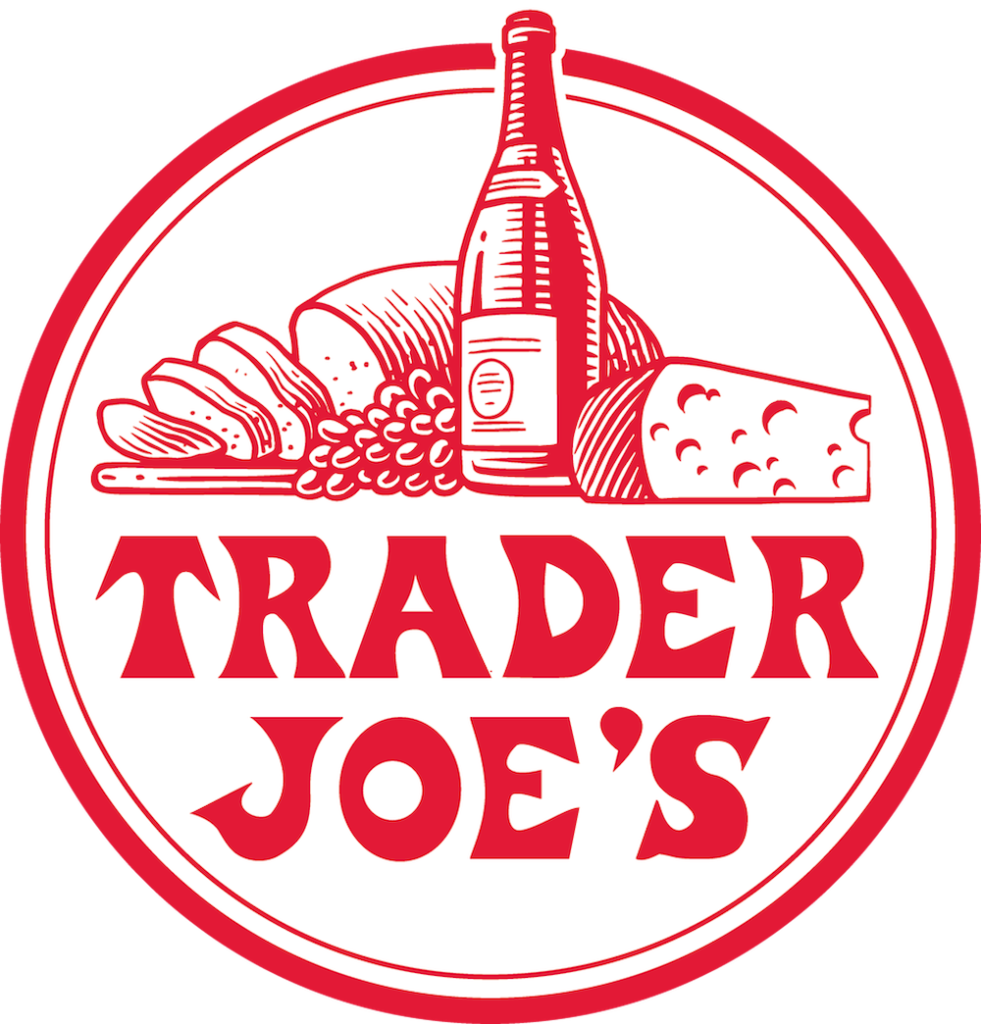HACKS FOR HUMANITY 2023- SUMMARY
overview
Project Humanities Celebrates 10 Years of Hacking for Humanity
Creating business canvas models, three- and five-minute pitching, researching three competitors, determining financial sustainability, and building a website constitute the typical purview of business and engineering types but not necessarily humanities. Yet this is the arena Project Humanities at Arizona State University stepped into for the tenth time on Friday evening, October 6 through Sunday afternoon, October 8 in its unique and impactful “Hacks for Humanity: Hacking for the Social Good.” Bringing together undergraduates, high school students, professionals, retirees across the Valley for 36 hours to innovate a technology for the social good has been an effective way to demonstrate the rewards of diversity, collaboration, and community-building. In this space, engineers, businesspeople, artists, generalists, techies, and non-techies were randomly assigned teams to create and innovate. This year’s competition tracks were Disability/ Ableism, Fashion, and Animals (Non-Human), and 12 teams of 4-5 members worked diligently to create and pitch impressive products that embodied at least 3 of the 7 values Project Humanities calls Humanity 101—compassion, forgiveness, empathy, kindness, integrity, respect, and self-reflection. Humanity 101 is not a course but rather a series of activities and programs that center humanity and justice. 100+ individuals–team competitors, volunteers, mentors, Project Humanities staff, Project Humanities student workers and interns, workshop facilitators, keynote speaker, and judges–made this event particularly special as it was the first totally in-person Hacks for Humanity since before the pandemic.
In addition to the intense focus on social challenges and interventions, competitors enjoyed a fun collaborative icebreaker—building balloon furniture with a roll of masking tape and 25 balloons. In 20 minutes, teams built arm rests, mattresses, rafts, and chairs. Once built, a member of the team had to sit on the balloon for 30 seconds without popping said balloons. Other fun activities punctuating the event included therapy dogs, a game truck, board games, and lots of delicious food from Citron Caterer. An opening plenary by hackathon leading Sponsor—State Farm Companies Foundation—challenged everyone to be more mindful of everyday ableism experienced by those who are deaf or hard of hearing. Friday night’s plenary was followed by Saturday morning workshops on each of the three tracks.
TRACKS 2023
Animals
Non-human animals are present in so many areas of humans’ lives—companionship, labor, art, and nutrition, to name a few. How do the principles of Humanity 101 come into play when considering the role of non-human animals in this world?
Disability
Each person experiences life differently; however, not everyone is accommodated for equally. How can inequalities be addressed to ensure that everyone has the opportunity to participate in society, regardless of ability?
Fashion
Fashion is a mode of creative and sometimes political expression, but its impact on people’s lives goes far beyond. From the labor used to create clothing, the environmental impacts of the clothing industry, or the political and social messages conveyed by its wearers, fashion holds an important place in society.
WINNERS 2023
First Place (Tied)
Team 7 Diego’s Journey
Diego’s Journey is an educational app with games designed to support and promote childhood development, with a tool for early detection of disabilities. This product addresses the challenge of learning disabilities, particularly in children. The software provides games for children throughout different developmental ranges (0-2 y/o, 2-5 y/o, and 5+ y/o). The solution is to provide a fun way for children to improve cognitive development through games, and providing performance metrics and notes to parents regarding their child’s performance. The Humanity 101 principles in this product are: compassion, empathy, and respect.
Team Members: Luna Nguyen, Sierra Blemaster, Shubhneet Nolastname, Dalyla Gaytan, Kirtik Singh
Visit Website
First Place (Tied)
Team 11 Sign Link
A major challenge surrounds the ability for deaf and hearing communities to communicate with one another. Sign Link is a product that bridges gaps between those two communities by creating a translation tool that allows for seamless interactions between people who use sign language and people who speak. The Humanity 101 principles in this product are compassion, integrity, and kindness.
Team Members: Jay Jayani, Brooke Bolsinger, Riddhi Gondaliya, Anirudh Manjesh, Amrit Singh Johal
Visit Website
Second Place
Team 1 Pupability
Pupability is an app that connects people with disabilities who don’t have a platform to find service animals that best meet their needs. This product allows potential owners and animal trainers to meet in a centralized marketplace with transparent pricing. The Humanity 101 principles in this product are compassion, empathy, respect, and integrity.
Team Members: Bryan Martinez Rojas, Eric Covino, Stephanie Bucklin, Stephen Roe, Anved Puri
Visit Website
Third Place
Team 5 Generative Visual Language
Generative Visual Language is a product that will revolutionize how people with difficulties hearing attend video calls. This video app transforms speech/text to context-relevant images for enhanced understanding, ensuring equal participation for everyone in video calls. The Humanity 101 principles in this product are compassion, integrity, and kindness.
Team Members: Chandra prakash Pandey, Bharat Gupta, Alex Koopman, Mason Gibbs, Rajiv Kataria
Visit Website
PARTICIPATION STATS
| Education Level |
Number of Participants |
| Undergraduates |
30 |
| Graduates |
18 |
| High schoolers |
2 |
| Business professionals |
5 |
MENTORS and volunteers STATS
Mentors committed a minimum of 2-hour blocks wherein they tested teams’ ideas and offered guidance. Mentors utilized their expertise to help teams spark creativity, generate ideas, problem solve, and develop final presentations. Mentors were scheduled according to their expertise and assisted participants with submitting on time quality work for deadlines. Team participants were required to show both their Canvas Business Model and Challenge Statement to two mentors and run their pitch by a panel of mentors for feedback and approval before presenting their live pitches to final competition judges. Mentors from diverse fields provided critical perspectives for each team.
Volunteers had responsibilities such as event setup, assisting with the icebreaker, verifying team submissions for participants, as well as assisting Project Humanities staff as needed.
WORKSHOPS
Plenary: Success with Accessibility
Michael Hansen was born with a hearing loss and grew up wanting to make a positive impact on people with one or more disabilities. Currently, he is a manager at State Farm where he enjoys supporting his teams and advocating for the disability community through the Advocacy of Disabilities and Education ERG.
Michael discussed:
- His experience growing up in a small town where he was the only Deaf student in his school district. He and his family advocated for necessary resources to support his academic achievement.
- Challenges of his initial interview at State Farm and improvements in the ADA Accommodation request process for interviews/daily working life.
- Technology implemented to help him develop meaningful work relationships at State Farm and become a manager at a Fortune 50 company.
- An overview of advancements in assistive technology at State Farm in the last 25 years
Adero C. E. Allison, Ph.D.
Disability/ Ableism
Adero C. E. Allison, Ph.D. (she/her) is Assistant Director, Student Accessibility and Inclusive Learning Services at Arizona State University.
With a background in music, disability, and social sciences, Dr. Allison has experience that spans over 40 years working with people with disabilities from vocational programs to large systems change projects related to disability in work, home, and employment, and currently, with students in ASU undergraduate and graduate programs. She is a scholar/practitioner serving professionally as a private coach and organizational consultant. In my current position, she coordinates the development of new initiatives to develop student supports that go beyond the provision of accommodations to life skill development and employment preparation for beyond the university.
My ability to see and share where things connect and where they lead allows me to help individuals and organizations expand their awareness and potential.
Fashion
Jessie Kosak received a Bachelor of Fine Arts in fashion design and sustainability and a Master of Fine Arts in fashion design and society from Parsons, The New School for Design in New York City.
She has worked internationally as a designer for over a decade, and as an environmental and sustainability researcher for the fashion industry.
She is currently an instructor at Arizona State University, where she teaches courses on fashion design and sustainability. Her current research focuses on the connection between historicism in fashion and emotional durability as a catalyst for lowered consumption.
Animals (Non-Human)
Terri Hlava holds a PhD in Education Psychology and is the personal human to Copper D., Shay B., and Montreux G. Hlava.
They team teach Disability Studies, Justice Studies and Ethnic Studies courses at Arizona State University and research children’s implicit theories of academic ability for self, others and other species. In 2007, Terri and her teammates co-founded H.A.B.I.T.A.T. (Human Animal Bond In Teaching And Therapies).
Terri’s happy place is always in the company of dogs and most anywhere outdoors.
JUDGES
Ada Martin Ada (Ah-tha) Martin (she, her, ella) owns Equitable Learning Solutions, an educational consulting business where she serves as a Diversity and Inclusion Learning Consultant, advising companies on best practices related to Diversity, Equity, and Inclusion training. She is also a former Senior Instructional Designer for W.P. Carey School of Business and the past president of ASU’s Chicano/Latino Faculty and Staff Association. Ada holds an undergraduate degree in Spanish from Arizona State University and a master’s in Educational Counseling from the University of Phoenix, and she is a doctoral candidate in her final year of study in the Educational Leadership and Policy doctoral program at the University of Arizona. Her work focuses on DEI in higher education and the institutional harm often inflicted on Black and Latino educators in academic spaces.
Dr. Ibeh Agbanyim is a certified DEI coach, certified management and leadership executive, and certified mental health and wellbeing in the workplace expert. He is a contributor at the Psychology Today, Forbes, and The International Honor Society in Psychology. He is a multiple bestselling author of The Five Principles of Collaboration which he uses to coach executives on how to improve human relationships in the workplace. He earned both master’s and doctorate in industrial and organizational psychology from Grand Canyon University; executive certificates from both MIT Sloan School of Management, and Harvard Kennedy School.
Dr. Elizabeth J. Donaldson holds a Ph.D. in English and is a scholar of disability, madness, the history of psychiatry, and American literature. She has published essays on LSD-inspired disability-immersion experiences of schizophrenia, mental illness in film, antipsychiatry in Lauren Slater’s memoirs, the depiction of psychosis in comics, and physiognomy and madness in Jane Eyre. She joined ASU in July 2023 as the inaugural director of the School of Applied Sciences and Arts in the College of Integrative Sciences and Arts at the Polytechnic campus.
Terry Hanson has been a resident of The Valley since 1975. His professional background has swung from sales and distribution to industrial manufacturing to healthcare. International travel to all the continents and over 150 countries has been his ‘unpaid vacation’. Philanthropic volunteering has also consumed much of Terry’s free time in the Valley, serving on multiple foundation boards over the years.
EVENT SCHEDULE
SPONSORS
SUPPORTERS
